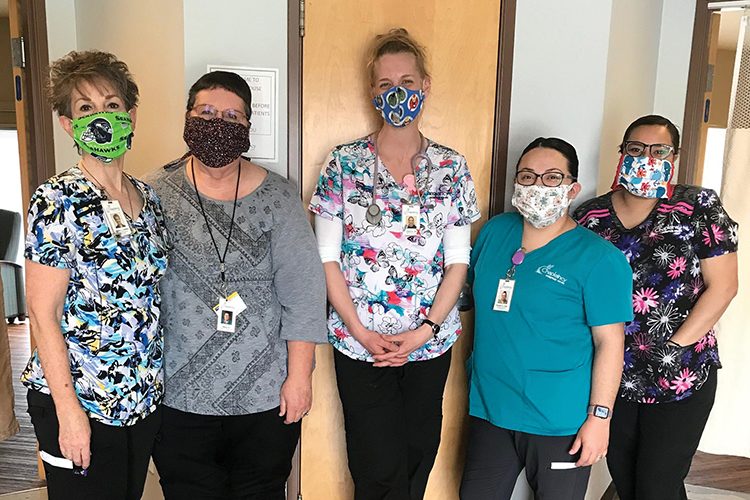
Home » Tri-City health care agencies seek homemade masks, gowns
Tri-City health care agencies seek homemade masks, gowns

April 14, 2020
A Tri-City nonprofit that serves the terminally ill and their families sought volunteers to make masks and gowns to protect its caregivers from infectious diseases during the coronavirus pandemic.
With N95 respirators and masks earmarked for hospitals and others, Chaplaincy Health Care is turning to homemade items to bolster its dwindling supplies of critical masks and gowns for hospice workers.
It’s not the only health care agency seeking personal protective equipment donations. The Benton-Franklin Health District serving the Tri-Cities has received numerous donations and is working to pair the donations with agencies needing them.
Leslie Streeter, Chaplaincy’s director of operations and business development, posted video instructions for both masks and gowns along with a plea for volunteers to produce them to the nonprofit’s Facebook page.
Streeter hoped to secure about 200 masks and 200 gowns for use in Hospice House in Kennewick.
Ideally, Hospice House would use commercially produced, sterile gear when needed, but hospices are ranked behind hospitals and senior centers on the priority list. As the need for protective gear rose with the coronavirus pandemic, Chaplaincy decided to turn to volunteers.
Chaplaincy didn’t specify fabrics or other details. All donations will be washed in hot water and sterilized. Donated items will be rewashed between uses.
Handmade isn’t ideal, but it’s superior to no protection, Streeter said.
The Centers for Disease Control and Prevention has said health care professionals might use homemade masks to care for patients with COVID-19 as a last resort. However, homemade masks are not considered personal protection equipment since their capability to protect workers is unknown. The CDC recommends caution be exercised and that homemade masks ideally should be used in combination with a face shield that covers the entire front and sides of the face.
As of March 23, Hospice House had fewer than 100 masks and gowns.
In normal circumstances, Hospice House personnel use protective gear around patients with infectious diseases, which is not typical. Most patients have terminal conditions that are not infectious.
With coronavirus, it is stepping up its use of protective gear. Even so, it is restricting masks to use around patients who show concerning symptoms. Patients are routinely screened for temperatures or other symptoms of infectious illness.
“Our supplies aren’t normally that high. That’s part of why we’re so hard hit,” she said.
Here’s how to help:
• Masks and gowns for Chaplaincy Health Care may be dropped off at Hospice House, 2108 W. Entiat St., Kennewick, or at the Chaplaincy administration building, 1480 Fowler St. in Richland. For more about the agency and its services or to make a financial contribution, go to chaplaincyhealthcare.org.
• The Benton-Franklin Health District serving the Tri-Cities has received numerous donations, according to a Twitter post. Apply for donated masks at ow.ly/kyhO50yVTkj then email the form to eoc.logistics@bfhd.wa.gov.
• The Tri-Cities Cancer Center is accepting homemade masks at a drop-off station at the back of the building near the administration entrance. Call 509-737-3413 prior to dropping off donations. The cancer center is at 7350 W. Deschutes Ave. in Kennewick. Donations also are accepted online to support comfort packs for cancer patients that include a blanket, soft hat and a satin pillowcase at tccancer.org/foundation.
• The JoAnn fabrics store in Kennewick said it did not have free mask kits on March 26 because the nationwide chain ran out of material after announcing it would provide precut material for face masks then distribute the donated items to health care facilities to support the coronavirus effort.
• A link to a pattern for isolation gowns, suitable for beginning sewers, is here: https://bit.ly/gown-pattern.
• A link to a St. Josephs’ Health video guide to making face masks is here: https://bit.ly/facemask-pattern.
Local News
KEYWORDS april 2020





